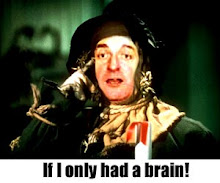Mr Kolpert
 Bertie Ahern put on the grill at the Mahon Tribunal
Bertie Ahern put on the grill at the Mahon TribunalI had heard that 'Mr Kolpert' tends to divide audiences; you either really hate it or really love it. What has surprised me is that I found that I am somewhere in the middle.
Borrowing very heavily from Hithcock's 'Rope', and so from a real life case in the forties, 'Mr Kolpert' puts us in a very unusual dinner party. A young couple, Ralf and Sarah, invite an older couple, Bastian and Edith, over for an evening's entertainment (or as they themselves stress, for their own entertainment). At the outset they claim to their guests that they have murdered the innocuous Mr Kolpert and put his body in a huge trunk that lies at the centre of the stage. The question of have they/haven't they takes up much of the play.
Once again the cast is excellent. Every role provides an opportunity to shine (even a small role like the pizza delivery man gives Peter Daly a good turn) and each actor takes their opportunity gamely. Initially I felt Sam Corry was a little too low-key, especially given Fergal McElherron's extrovert turn, but ultimately his understatement heightens the demented quality of his character. Kathy Rose O'Brien and particularly Gillian McCarthy shine in the female roles. The cast's performances are particularly brave given that in the finale, three of the leads are (Shock! Horror!) required to take off all their clothes.
Again the story is not original. The message about society's loss of real feeling, and in turn its humanity, is old too. Playing most of it for laughs is refreshing, but sometimes the German humour relies too much on the iconoclastic. I found it fun, but not hilarious. I chuckled, I cackled, but try as I might, the belly laughs just wouldn't come. And when one knows the plot in advance, laughter is essential.
And what about that nude ending? As I wrote three actors strip and then cry. They are laid bare in every way, and quite deliberately echo three children caught in forbidden play. It is touching. I was reminded of a quote by the director, Michael Reeves, I posted a few weeks back. In short he claimed that if an artist does not show violence as disgusting and reprehensible, he runs the risk of glorifying it and so behaving immorally. The crying scene points the finger at the immoral behaviour of the play. After all the farce, it reinstates the human.
But does it deserve this? Has it earned the right? After all, the play can not be held up as a piece of realism. Can it suddenly inject authentic feeling?
In what I can only describe as doublethink, being forced to acknowledge the larger than life aspect of the characters, forces us to expand the scope of the play. In crying for their actions they cry for us, for humanity's loss of value, and feeling. Recognising murder as wrong, and feeling that, should be a fundamental characteristic of humanity. Losing that we lose our humanity. We thus find ourselves in a very dark place, and one in which crying is perfectly warranted.
In short, it works. The nudity is certainly not gratuitous.
A good play well staged then, and three out of three for the Rep Experiment.
Labels: Theatre


0 Comments:
Post a Comment
<< Home